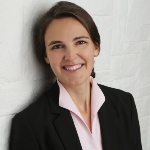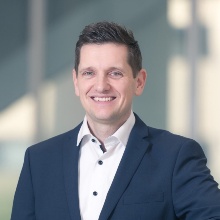An article by Simon Schwarz (original reprint, courtesy of the Tagesspiegel)
In university, Alexander Brem was determined to found a company, industry and direction did not matter. "We then founded the most boring business in the world: a consultancy," he says and laughs. Later, he switched to academia - and today teaches his students, of all things, creativity and innovation. Since 2019, he has been the institute director and holder of an endowed chair for entrepreneurship in technology and digitization at the University of Stuttgart. The position is supported by the Daimler Fund in Stifterverband for the Promotion of Sciences and Humanities in Germany.
The professorship is part of Cyber Valley, one of Europe's largest research centers for artificial intelligence. In addition to companies such as Amazon and BMW, the universities of Tübingen and Stuttgart and the Max Planck Society are involved. In Tübingen, the focus is primarily on basic research. In Stuttgart, Alexander Brem looks at artificial intelligence through the lens of business administration: "Here, I understand the focus to be on AI + X, which means linking AI in an interdisciplinary way. What makes an AI ecosystem, which players does it need?"
His research focuses on technology-driven innovation and entrepreneurship. In other words, how to transform innovations into start-ups. He praises the strong industrial and research environment in Baden-Württemberg. However, he considers the Swabian caution of the founders to be a handicap: "They tend to think small. Our task is to bring 'think big' even more strongly into play here," he says. He is currently developing a program for AI doctoral students to teach them about entrepreneurship.
Alexander Brem was born in Bad Kötzting in 1979 and grew up in Viechtach in Lower Bavaria. He comes from a working-class family. His father was a carpenter and his mother worked in a factory. He never received anything as a gift in his life. When he was in the fourth grade, holding his certificate for secondary school, his teacher said: "No way, you're not going there. And tore up the note and threw it away, he says. His parents supported him anyway.
After graduating from high school, he went to Nuremberg and studied business administration. "I didn't have a grand plan, but always took opportunities when they arose," he says. While still a student, he and three fellow students founded a consulting firm for strategy development and innovation management, Vend Consulting GmbH, in 2004. They received nothing but pity from their fellow students. They preferred to join a large company directly. His company became a success. And the day-to-day work of his former fellow students was boring. Later, they also wanted to join.
After the foundation he made a career at the university
At the same time as founding the company, he completed his doctorate. He then worked full time at the consultancy from 2007. From a small bakery to a high-tech spin-off at the university, he would have supervised almost anything. After the global financial crisis, he was drawn to academia in 2011. Initially, he was an assistant professor for idea and innovation management at FAU in Erlangen-Nuremberg. In 2014, he went to Syddansk Universitet in Denmark as a professor of technology and innovation management. Subsequently, he occupied the chair for technology management at FAU.
After three years, he moved to the University of Stuttgart. "Here I can establish something. It's like a startup," he says. He already knows the city's regional ecosystem and makerspaces well. He no longer depends on business cycles and the state of business, he says. That means he has more time for his students, he says. In addition to his position at the university, he is vice chairman of Querkraft. The innovation association brings together representatives from business and science.
When he teaches entrepreneurship today, he can draw on experiences he had when he founded his own company - both positive and negative. There is one thing he regrets, for example: "If we had also had computer scientists, mechanical engineers or engineers back then: What could have become of the company then?". In the meantime, he believes that interdisciplinarity is more important, also when it comes to digitization. Brem is not a classic AI researcher. He sees his role more in exploring how to successfully develop and found products.
"I've always been about connecting things, and passing balls to each other in the network," he says. With that mindset, he's in good hands at Cyber Valley. The international competition is fierce. Will the AI cluster be able to keep up? "You have to have the ambition," he says. Don't hesitate and look ahead. That's what Alexander Brem's life is all about. He could be successful again.
Three questions for Alexander Brem
1) What innovation would you like to see?
Personally, I would like to see software that allows me to transfer my thoughts directly into messages such as e-mails, letters or the like in real time and also translate them into other languages. Companies like Facebook are offensibly already working on this. This highlights a typical digital dilemma: Will the benefits of the application outweigh the privacy concerns?
2) Who from the digital scene has impressed you?
Currently, I can think of all those involved in the school family who have switched to digital overnight with the greatest commitment, mainly on their own initiative, i.e., teachers, but also families. I don't know of any other area where digitization was as far behind as it is here.
3) As minister of digital, I would...
...see the ministry as a cross-sectional task and try to support the multi-layered activities of the other ministries in the direction of digitization, coordinate them on a higher level and drive them forward with new ideas.
Contact

Melanie Minderjahn
Career Service - Inner Development, Public Relations


